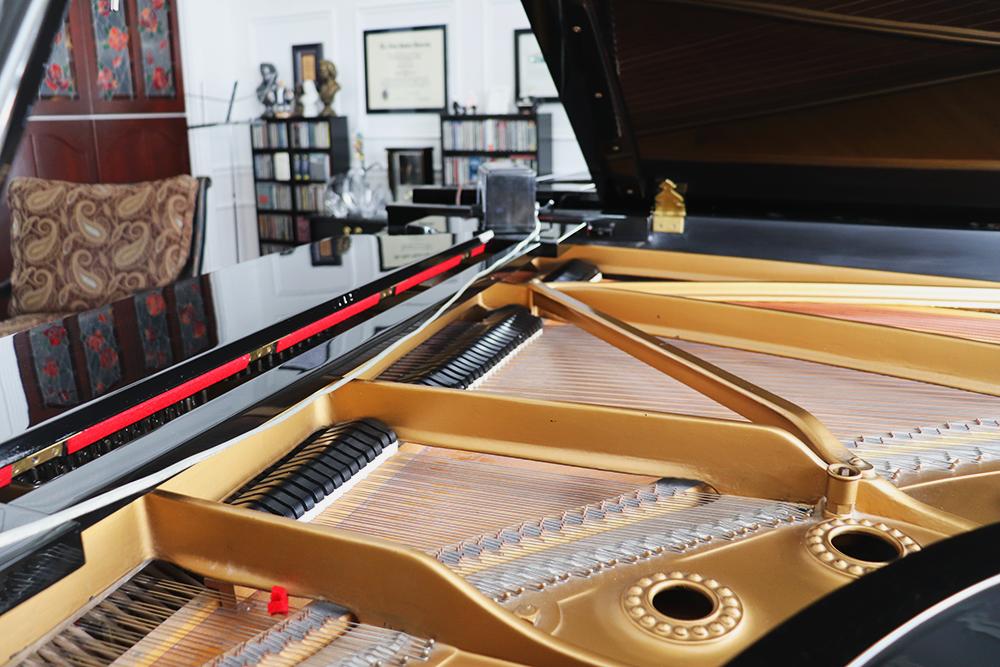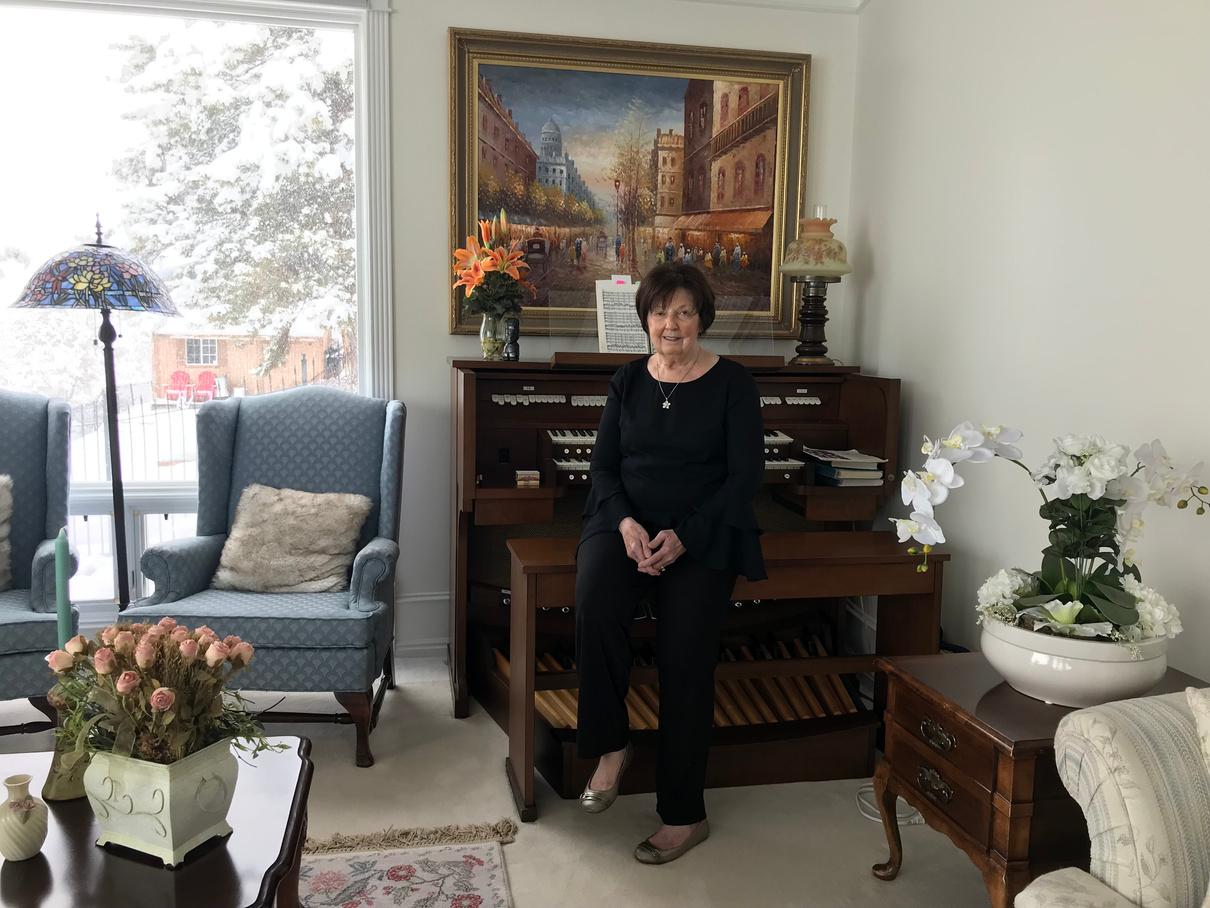
3 minute read
Irene Peery-Fox
Dr. Irene Peery-Fox has loved playing the piano ever since she was three years old. Dr. Peery-Fox recalls that her brother began piano lessons when he was five years old and that she would listen to his lessons and practice sessions. She says, “My mother said that I would listen to Frank practice, and when he did things wrong, I would say, ‘No Frank, it goes like this!’ And I would knock him off the piano bench to play.” So Irene’s parents put her in piano lessons instead.

By the time she was 11 years old, Irene had outgrown the local piano teachers in both Cardston and Lethbridge, two small towns in southern Alberta Canada. Irene’s parents drove her 150 miles on gravel roads to Calgary every week to study with Dr. Gladys Egbert. “And we didn’t miss,” Dr. Peery-Fox recalls, “come rain or shine, we still didn’t miss a lesson.”
Dr. Peery-Fox recalls that her father taught his children to be disciplined. “He told us all that we should choose one thing that we really liked to do and to be the best at it.” Irene’s father said that if they were going to take her to Dr. Egbert in Calgary, which was a huge sacrifice for the family, Irene was going to practice two hours before school and two hours after school. “I can remember thinking how cool that was,” said Dr. Peery-Fox.
Since then, Dr. Peery-Fox has never tired of playing the piano. She recalls that “Nobody ever asked me to practice. No one told me that I ever had to do it.” For Irene, it was simply a joy and something she always wanted to do. “[Playing the piano] is something I can’t live without and don’t want to live without. There’s nothing more beautiful than beautiful piano music… It's very uplifting and wonderful.”

Dr. Peery-Fox received both her bachelor’s and master’s degrees from the Juilliard School and her doctorate degree from the Peabody Conservatory of Music of Johns Hopkins University where she studied with Leon Fleisher, one of the most accomplished American pianists of the twentieth century. As Irene’s husband completed his doctorate degree, he asked her where she wanted to teach. “I said

I wanted to stay back east and teach at a conservatory… but my husband was offered a job at USU. Later he was offered a job at BYU.”

Coming to BYU was not the original plan, but Dr. Peery-Fox recalls that “I got here to the university, and it felt like the Lord was saying to me, ‘You don’t know where you’re supposed to be, and you’ll get lots of blessings at BYU.’ And I just loved it there.”
Dr. Peery-Fox taught at BYU for thirty-six years. She was a brilliant teacher and a pioneer for women faculty in the School of Music. While teaching at BYU she became the first full-time tenured female faculty member in the piano department—an accomplishment she is very proud of. She felt her position as a tenured female faculty gave her the opportunity to personally mentor and guide female students in the music program. “There are some young women who need a woman's example … and I think the Lord put me at BYU to be an example to the young women in the program, helping them to see that they can pursue the highest degrees and still be married and raise children.”
One of Dr. Peery-Fox’s favorite things about teaching at BYU was the students. “[The kids] were always stalwart, disciplined, and loving.” Dr. Peery-Fox recalls that she always tried to teach her students about the importance of developing their talents. She said, “When we develop our talents, we are much more useful to all of society because God is in our lives.”
Dr. Peery-Fox retired from her full-time teaching position at BYU in 2019. She continues to teach a few students from her home, oftentimes preparing them for prestigious competitions. In her home, Dr. Peery-Fox has seven grand pianos, including two Steinway concert grands, and an organ. Over the years, Dr. Peery-Fox has become proficient at playing the organ and has been a ward organist since she was eight years old. In recent years, it has become a tradition in her ward that she performs the Hallelujah Chorus every Christmas and Easter on the organ.



For Dr. Peery-Fox, a musical education is valuable for several reasons. First, she said, “Playing a musical instrument develops the right side of your brain, so it’s always making you smarter.” Second, she said “It’s also good for your community, for your church, and is a way that you can contribute for your whole life.” Thirdly, she said “Music is always meaningful for people.”
Irene says that whether music is being played or listened to, it has the power to teach, uplift, and heal. “Music is really sacred and special that way,” says Dr. PeeryFox, “I think everybody needs music in their lives.” Dr. Peery-Fox always taught her students that developing their talents was one of the most important things they could do. When musicians are committed to developing their talents, they will have a greater capacity to bless the lives of others and share the light of music.
By Sarah Griffin Photos courtesy of Irene Peery-Fox and Sarah Griffin, School of Music










